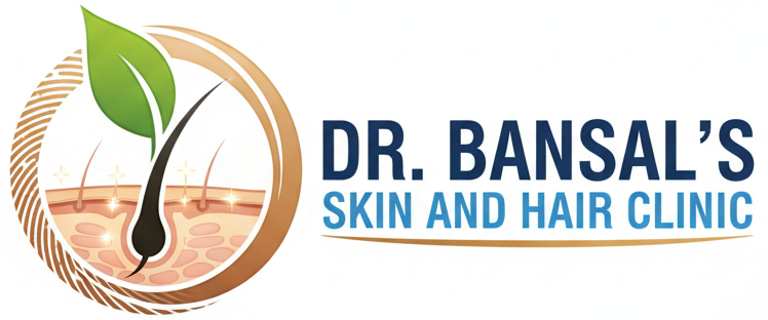Eczema (Atopic dermatitis) Treatment in Indore
Dr. Bansal's Skin Clinic, Indore
Atopic Dermatitis, commonly referred to as eczema, is a chronic skin inflammation characterized by dry, itchy, red, and irritated skin.
It often starts when one is a child, but it can happen at any age. Eczema is not contagious, but it does run in the family and is related to allergies, asthma, or hay fever.
That happens because the protective barrier of skin is very weak; it loses moisture easily and is more sensitive to different irritants and allergens.
Symptoms
Dry, scaly, and itchy skin
Redness or inflammation in patches, sometimes with small lumps
Crusting or oozing in severe cases
Thickened or darkened skin due to long-term scratching
Commonly affects the face, neck, elbows, knees, hands, and feet
Treatment of Eczema
Although there is no permanent cure, treatment helps control itching, reduce inflammation, and prevent flare-ups.
1. Skin Care and Moisturizing
Keep the skin hydrated by applying moisturizers (emollients) several times a day.
Examples include: petroleum jelly, ceramide creams, shea butter, or fragrance-free lotions.
Use mild, fragrance-free soaps and cleansers.
Take brief, tepid baths and gently pat the skin dry.
Apply a moisturizer immediately after bathing to seal in the moisture.
2. Topical Medications
Used to reduce inflammation and itching:
Corticosteroid creams or ointments, such as hydrocortisone or betamethasone, will reduce redness and swelling.
Calcineurin inhibitors (e.g., tacrolimus, pimecrolimus)-used on sensitive areas like the face or eyelids.
Topical antibiotics-if the skin is infected or has open sores.
3. Oral Medications
Used for moderate to severe eczema:
Antihistamines include cetirizine and loratadine, which reduce itching.
Corticosteroid tablets - used for short periods during severe flare-ups.
Immunosuppressants, e.g., cyclosporine, methotrexate. If other treatments are of no help.
4. Phototherapy (Light Therapy)
Controlled exposure to ultraviolet light can help decrease inflammation and itching.
Generally, indicated for patients who do not show a response to topical or oral medications.
5. Biologic Therapy (Newer Treatments)
Dupilumab (Dupixent) is an injectable biologic medication for moderate to severe eczema in patients who have failed conventional therapy.
Controls the overactive immune response responsible for the process known as inflammation.
Prevention and Self-Care
Avoid scratching because it exacerbates the rash and leads to infection.
Wear soft, cotton clothes instead of wool or synthetic fibers.
Avoid known triggers, such as dust, soap, detergent, certain foods, or stress.
Keep fingernails short to prevent skin damage due to scratching.
Keep the room humid if the air in your home is dry. ⚠️ Important Note: Eczema may flare up and then subside, but with good care and treatment, it can be controlled. Medication should not be started without consulting a dermatologist, particularly in children.
Care
Dr. Shreyas Bansal has over 46 years of experience in promoting hair health and wellness. At Dr. Bansal’s Homeopathy Clinic, located at 2 Manish Bagh, Sapna Sangeeta Road, Indore, we provide personalised care to strengthen your hair, improve scalp health, and restore confidence naturally.
Health Hairs AT
Beauty
+91 9926120111
© 2025. All rights reserved.
